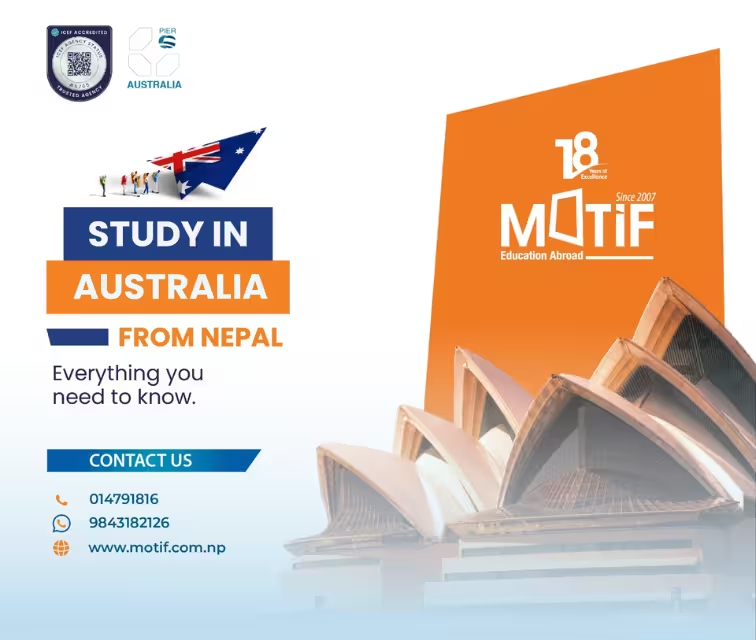
Introduction
Are you a Nepali student dreaming of higher education in Australia? You’re not alone. Australia is a top choice for Nepali students.
Study in Australia from Nepal for quality education and career growth.This guide covers everything you need to know about your educational journey. We’ll explain the application process, visa requirements, costs, and scholarships.
Why Choose Australia for Higher Education?
Australia has 43 universities with many in the global top 100. The education system focuses on practical skills and critical thinking.
Graduates from Australian universities enjoy high employability worldwide. Australian degrees are recognized globally by employers and educational institutions.
Australia’s multicultural environment helps international students feel welcome. You’ll study alongside students from over 200 countries.
The country offers a safe environment with high living standards. Australian cities regularly rank among the world’s most livable places.
Australian Education System
Australian qualifications follow a clear structure. These include certificates, diplomas, bachelor’s, master’s, and doctoral degrees. Each level builds on the previous one with clear progression paths.
The academic year runs from February to November with two main semesters. Some universities offer three trimesters for more flexible start dates.
Classes combine lectures, tutorials, group projects, and independent study. This mix helps develop both theoretical knowledge and practical skills.
Assessment includes exams, assignments, presentations, and practical work. Australian education emphasizes critical thinking over memorization.
Top Universities for Study in Australia from Nepal
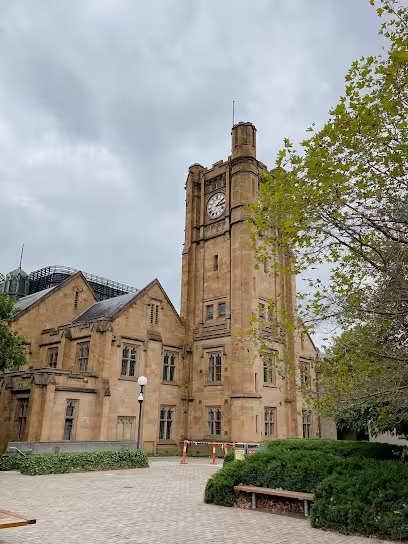
University of Melbourne
The University of Melbourne ranks as Australia’s #1 university. It’s known for research excellence and innovative teaching methods.
The university offers the Melbourne Model for flexible specialization. This allows students to explore different subjects before choosing a major.
Melbourne provides strong international student support services. These include orientation programs, academic help, and career guidance.
The university is located in Australia’s cultural capital. Melbourne has been voted the world’s most livable city multiple times.
The University of Sydney is Australia’s oldest university founded in 1850. It ranks in the top 50 globally according to major education rankings.
The institution offers 400+ study areas across all academic levels. Students can choose from a wide range of specialized programs.
Sydney University is located in Australia’s largest city. This provides excellent connections to jobs and internships with leading companies.
The university has a large Nepali student community. This helps new students adjust more easily to life in Australia.
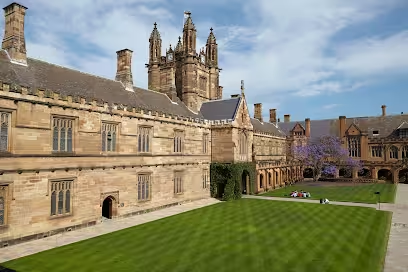
University of Sydney
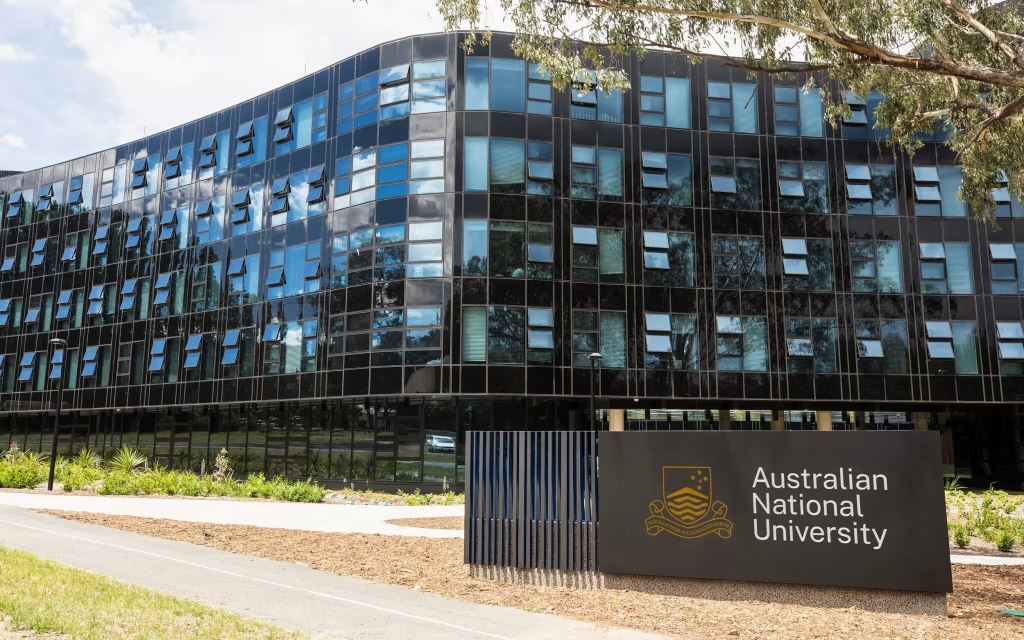
Australian National University (ANU)
ANU stands as Australia’s highest-ranked research university. It consistently ranks among the top 50 universities worldwide.
The university is located in Canberra, the capital city. This provides unique access to government institutions and national organizations.
ANU programs are particularly strong in law, politics, and international relations. Many graduates work in diplomatic and public service roles.
The university offers generous scholarships for international students. Nepali students with strong academic records should explore these options.
The University of Queensland is located in Brisbane with a warmer climate. This makes adjustment easier for students from Nepal’s warmer regions.
UQ has strong programs in medicine, science, and engineering. Their research facilities rank among the best in Australia.
Brisbane offers 30% lower living costs than Sydney. This makes the total cost of education more affordable.
UQ hosts an active Nepali student association on campus. They organize cultural events and provide support networks for new students.
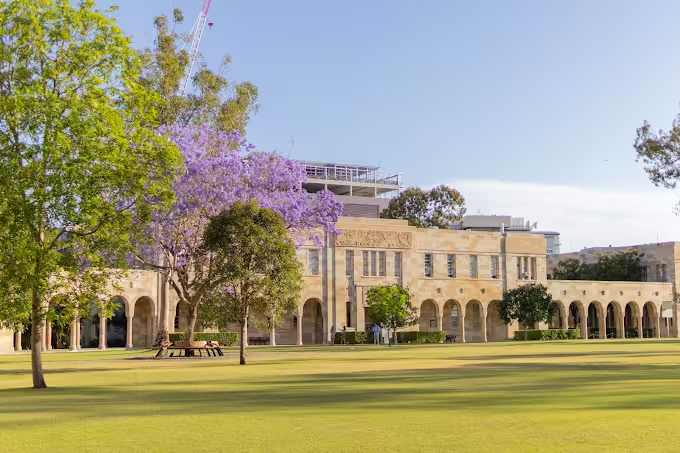
University of Queensland

Monash University
Monash University is located in Melbourne with multiple campuses. Students can choose urban or suburban study environments.
The university is known for business, engineering, and pharmacy programs. These fields offer excellent employment prospects after graduation.
Monash maintains strong industry connections for internships. Many students secure job offers before graduation through these networks.
The campus features modern facilities and vibrant student life. Numerous clubs and societies help international students connect socially.
Popular Courses for Nepali Students in Australia

Engineering and IT
Engineering and IT degrees from Australia have high demand globally. Employers value the practical, problem-solving approach of Australian education.
Graduates earn an average starting salary of AUD 70,000-90,000. Experienced professionals can earn well over AUD 120,000 annually.
Australia faces skills shortages in software, civil, and electrical engineering. This creates excellent opportunities for qualified international graduates.
Programs include work-integrated learning with leading companies. This hands-on experience makes graduates job-ready.
Business and Management
Australian business qualifications receive global recognition. Major accreditation bodies like AACSB and EQUIS endorse these programs.
Business graduates start with salaries around AUD 65,000-85,000. Top performers can progress quickly to management roles.
Business programs include internships with multinational companies. Students gain real-world experience while building professional networks.
Australian business schools maintain strong alumni networks in Nepal and globally. These connections help graduates find opportunities back home.
Health Science
Australia faces critical skills shortages in healthcare fields. This creates opportunities for international graduates to find employment.
Health professionals earn starting salaries of AUD 75,000-95,000. Specialized roles command significantly higher pay.
Programs provide hands-on clinical experience in Australian healthcare settings. This practical training meets international standards.
Health qualifications often provide pathways to permanent residency. Many occupations appear on Australia’s priority migration lists.
Hospitality and Tourism
Hospitality programs offer practical training in world-class facilities. Students learn in training restaurants, hotels, and event venues.
Graduates start with salaries around AUD 55,000-70,000. Management positions can pay over AUD 100,000.
Programs include industry placements in hotels and resorts. Many students receive job offers during these placements.
Australian hospitality qualifications open global career opportunities. Graduates work in luxury hotels and tourism businesses worldwide.
Admission Requirements for Study in Australia from Nepal
Academic Requirements
For undergraduate programs, you need a completed Higher Secondary Education Certificate with good grades. Most universities require at least 60-70% in relevant subjects.
Competitive programs like medicine may require scores above 85%. Keep your mark sheets and certificates ready for the application.
For postgraduate courses, you need a bachelor’s degree from a recognized Nepali university. The degree should relate to your chosen field of study.
Some programs require specific prerequisite subjects. Check university websites for precise requirements before applying.
English Language Requirements
All programs require proof of English language proficiency. The most widely accepted tests are IELTS, TOEFL, and PTE Academic.
Most undergraduate programs require an IELTS score of 6.0-6.5. Postgraduate programs typically require IELTS 6.0-6.5. Health related courses require an IELTS score of 7.0-7.5.
Prepare well for these tests as they significantly impact your admission chances. Many test preparation resources are available in Kathmandu.
Some universities offer conditional admissions with English pathway programs. These allow you to improve your English skills before starting your main course.
Application Process
Start your application 6 months before your planned start date. This gives you time for visa processing and preparations.
Most universities accept online applications through their websites. You’ll need to create an account and upload required documents.
Required documents include academic transcripts, English test results, passport copy, and statement of purpose. Some programs also require recommendation letters.
Application fees range from AUD 50-100 per university. This fee is non-refundable regardless of the admission outcome.
Success Story
Student Visa Process for Nepali Students
Visa Requirements
The Student Visa (Subclass 500) allows you to study full-time in Australia. You must apply online through the Department of Home Affairs website.
You must have a Confirmation of Enrollment (CoE) from your university before applying. This document confirms your acceptance into a registered course.
The visa application fee is currently AUD 1600. This cost is separate from other application fees and is non-refundable.
Processing times vary but typically take 4-6 weeks for Nepali applicants. Apply as soon as you receive your CoE to avoid delays.
Financial Requirements
You must show evidence of sufficient funds to cover tuition, living expenses, travel, and insurance. The Department of Home Affairs requires at least AUD 29,710 per year for living expenses.
Bank statements, education loans, or scholarships can serve as financial evidence. Funds should be held for at least three months before application.
The financial assessment is strict. Inadequate documentation often leads to visa refusal. Consider consulting a registered migration agent for guidance.
Health Insurance
Overseas Student Health Cover (OSHC) is mandatory for all student visa holders. It covers doctor visits, hospital treatment, and some medicines.
OSHC costs approximately AUD 3300 for 3 years, and AUD 1500 for 2 years. You can purchase it through your university or directly from providers.
Coverage must start from your arrival date in Australia and continue throughout your stay. Evidence of OSHC purchase is required for visa applications.
Cost of Studying in Australia from Nepal
Tuition Fees
Undergraduate tuition ranges from AUD 26,000 to 45,000 per year. The exact amount depends on your university and program.
Postgraduate courses cost between AUD 30,000 and 60,000 per year. MBA programs can be even more expensive, reaching AUD 60,000 at top business schools.
Medical and veterinary programs have the highest fees. These often cost AUD 60,000-80,000 per year. Engineering and science usually fall in the middle range.
Regional universities often charge 15-20% less than metropolitan institutions. This can save you thousands of dollars over your entire program.
Living Expenses
Accommodation is your biggest expense, ranging from AUD 150-500 per week. Shared housing offers the most affordable option for students.
Food costs approximately AUD 80-200 per week depending on your eating habits. Cooking at home saves money compared to eating out.
Transportation expenses range from AUD 20-40 per week with student concessions. Some cities offer free public transport in central areas.
Total living expenses average AUD 20,000-25,000 per year in major cities. Regional areas can be 20-30% cheaper.
Cost-Saving Strategies
Choose regional universities to benefit from lower tuition and living costs. The government offers incentives for studying in regional areas.
Apply for scholarships early and widely. Even partial scholarships significantly reduce your financial burden.
Work part-time during studies to supplement your income. Student visa holders can work up to 48 hours per fortnight during term.
Use student discounts for transportation, entertainment, software, and shopping. Your student ID card provides access to numerous savings.
Scholarships for Nepali Students

University Scholarships
Most Australian universities offer merit-based scholarships for international students. Awards range from AUD 5,000 to full tuition coverage.
Research scholarships cover tuition fees and provide stipends of AUD 28,000-32,000 per year for master’s and doctoral students.
Application deadlines often fall 6-12 months before course commencement. Research scholarship options well before applying to universities.
Competitive scholarships require excellent academic records, typically 80% or higher in previous studies. Leadership experience and extracurricular activities strengthen applications.
Government Scholarships
The Australia Awards Scholarships cover full tuition, living expenses, travel, and health insurance. These prestigious awards target future leaders from developing countries.
The Destination Australia Scholarship offers AUD 15,000 per year for studying at regional campuses. It aims to increase international student numbers in regional areas.
Research Training Program (RTP) scholarships support international students pursuing research degrees. They provide full tuition coverage and living stipends.
Working While Studying in Australia
Work Rights
Student visa holders can work up to 48 hours per fortnight during term time. During scheduled breaks, you can work unlimited hours.
Work rights begin only after you start your course. Working before course commencement violates visa conditions.
All workers in Australia receive minimum wage protection. The current minimum wage is AUD 23.23 per hour.
Common Jobs for Students
Retail and hospitality jobs are most accessible for international students. These include roles in cafes, restaurants, supermarkets, and stores.
These positions typically pay AUD 23-28 per hour plus higher rates for weekend or evening shifts. Tips are not common in Australia.
On-campus jobs offer convenient locations and relevant experience. Positions include library assistants, research assistants, and administrative support.
Tutoring fellow students or teaching languages can earn AUD 25-40 per hour. Your specialized knowledge becomes valuable in these roles.
Study in Australia from Nepal - Contact Us Today!
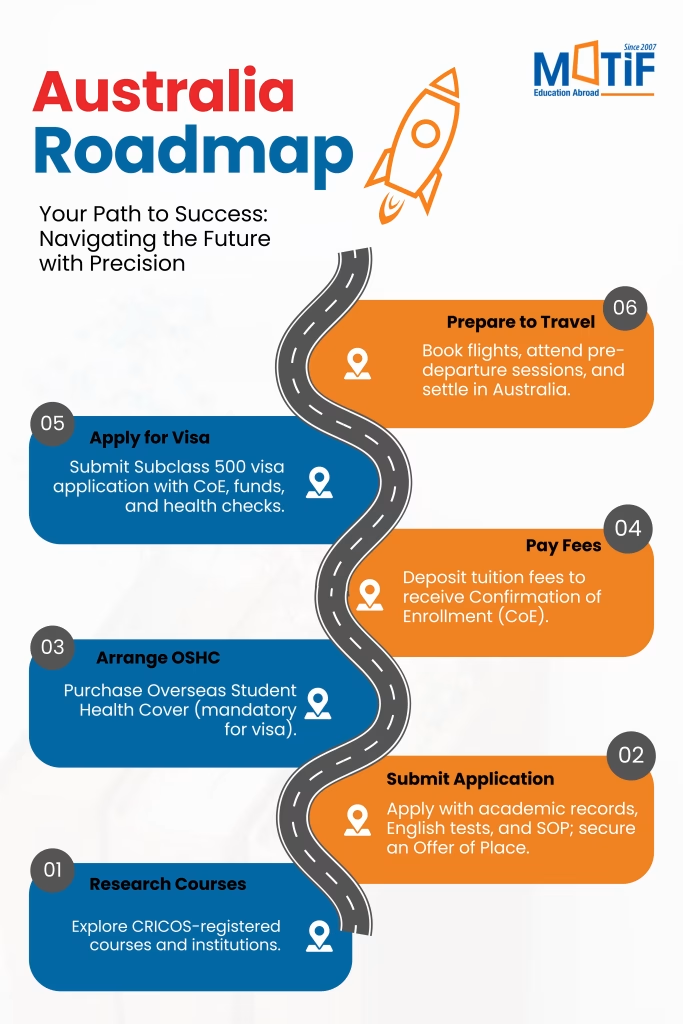
Post-Study Work Options
Temporary Graduate Visa
The Temporary Graduate Visa (subclass 485) allows you to remain in Australia and gain work experience after completing your studies.
The Post-Study Work stream grants 2-4 years of work rights depending on your qualification level. Bachelor’s graduates get 2 years, master’s graduates get 3 years, and doctoral graduates get 4 years.
This visa allows unrestricted work rights. You can work in any occupation without limitations on hours.
Pathways to Permanent Residency
Many Nepali graduates transition to permanent residency through skilled migration programs. These assess factors like age, English proficiency, education, and work experience.
The points-based system requires a minimum of 65 points to receive an invitation to apply. Higher point scores increase your chances of selection.
Occupations on the Medium and Long-term Strategic Skills List (MLTSSL) offer the best pathways to permanent residency. Research current lists before choosing your course.
Accommodation Options
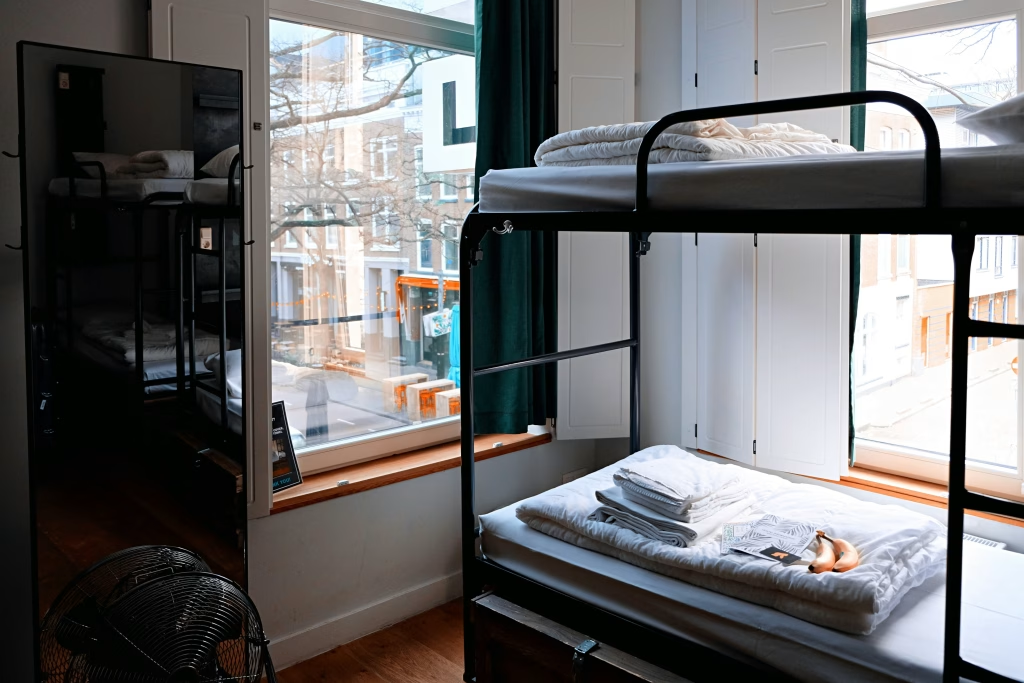
On-campus Housing
University dormitories provide convenient access to campus facilities. Rooms typically cost AUD 250-350 per week including utilities.
Most on-campus housing includes furniture, internet, and cleaning services. Some also offer meal plans in shared dining facilities.
These accommodations often organize social activities for residents. This helps new international students build friendships quickly.
Shared rentals involve renting a room in a house or apartment with other students. This typically costs AUD 150-250 per week plus utilities.
Independent apartments or studios range from AUD 250-450 per week depending on location and amenities. These provide more privacy but at higher cost.
Homestays with Australian families cost around AUD 200-300 per week including meals. This option helps improve English skills and understand local culture.
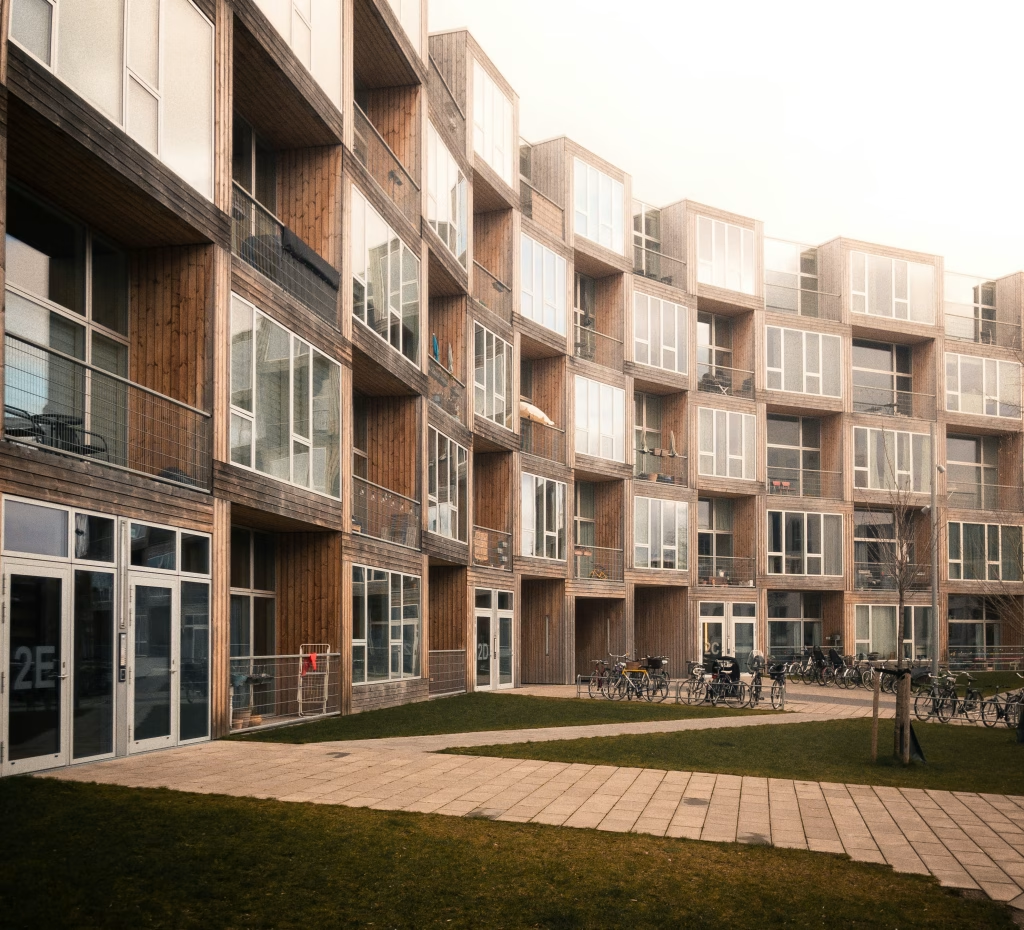
Off-Campus Options
Returning to Nepal After Graduation
Skill Transfer and Career Opportunities
Australian qualifications receive high recognition from Nepali employers. Graduates often secure positions with international organizations and multinational companies.
The cross-cultural communication skills developed in Australia prove valuable in Nepal’s increasingly global business environment.
Technical knowledge in fields like engineering, IT, or healthcare addresses specific development needs in Nepal. Returning graduates often fill critical skills gaps.
Higher starting salaries typically range from NPR 60,000-100,000 monthly for Australian graduates in Nepal. This represents a significant premium over local qualifications.
Conclusion
Study in Australia from Nepal offers life-changing opportunities. The world-class education prepares you for global career success.
The experience develops both academic knowledge and personal growth. Living independently in a new culture builds confidence and adaptability.
Careful planning makes the journey smoother. Start preparations early and research all aspects thoroughly.
The investment in Australian education pays dividends throughout your career. The skills, qualifications, and experiences gained create lasting value.
Take the first step toward your Australian education journey today. The path may seem challenging, but the rewards make every effort worthwhile.
Frequently Asked Questions(FAQs)
Total costs include tuition fees of AUD 26,000-45,000 annually. Living expenses add another AUD 21,000 per year. One-time costs include visa fees (AUD 1600), health insurance (AUD 1500 for 2 years), and flights (AUD 1,000-1,500).
Choose a course that clearly connects to your previous education and career goals. Prepare comprehensive financial evidence showing funds available for at least one year of study. Write a convincing Genuine Temporary Entrant (GTE) statement explaining your reasons for studying in Australia.
Regional cities like Adelaide, Hobart, and Newcastle offer living costs 20-30% lower than Sydney or Melbourne. Many regional universities also offer lower tuition fees and additional scholarship opportunities for international students.
Most Nepali students find part-time work within 1-2 months of arrival. Hospitality, retail, and cleaning jobs are most accessible. Having basic work experience and good English skills significantly improves your job prospects.
Nursing, engineering, IT, accounting, and teaching currently offer the best pathways to permanent residency. These occupations appear on Australia’s skilled occupation lists. However, immigration policies change frequently, so research current lists before choosing your course.
